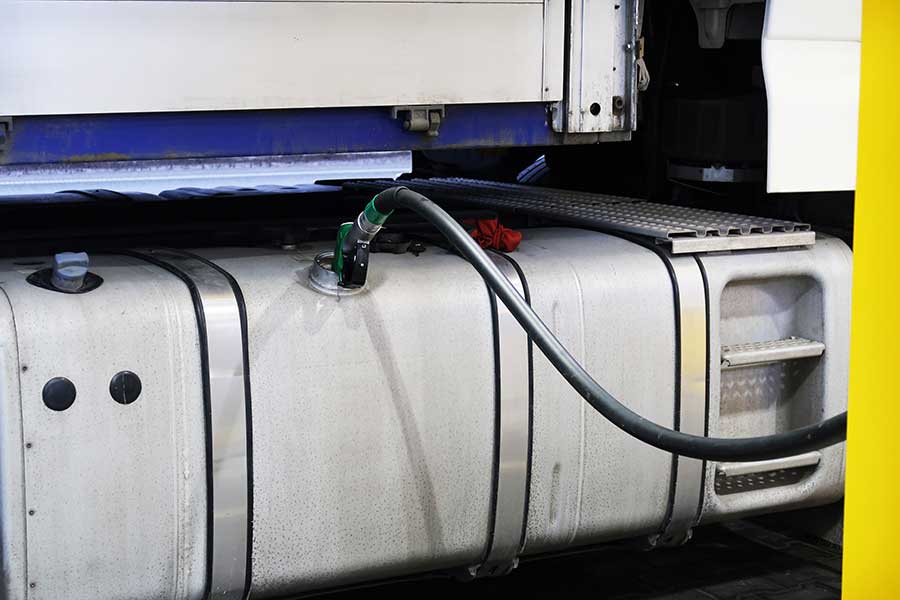When operating any kind of vehicle, one must know what kind of fuel it takes. Filling the vehicle with the wrong fuel will result in terrible performance from the vehicle and eventual damage to the engine itself. For this article, we are concerned with the difference between reefer and tractor fuel. Both fuel types serve a purpose; therefore, what are their purposes?
Reefer fuel is designed for any off-road vehicles, while tractor fuel is for any construction vehicle, alongside trucks and semis. Both can be used in similar vehicles; however, serve different functions. Understand the vehicle’s purpose for which fuel to take.
Only you can know what you intend to use the vehicle for, determining which fuel to use. Let’s go further and investigate why these fuels serve the purpose they do, the consequences when not used properly, the price of fuel, and some specific vehicles associated with each. Make sure to keep reading if you want to find out more!
Reefer Fuel

To begin with, reefer fuel is a type of fuel that is focused on lowering the temperature of refrigeration trucks. This means that these vehicles primarily focus on keeping any perishable items within the vehicle at low temperature and as fresh as possible, thereby preventing spoiling. As you may have guessed, this type of fuel is the main source for vehicles operating in the food supply chain. This includes those in the food industries such as agriculture. Keeping everything fresh as it travels towards its destination is the goal.
And as said earlier, vehicles that use reefer fuel are only off-road vehicles. This means that the vehicle will never operate on public roads. In other words, it is illegal, and you will be heavily fined if you operate these vehicles with fuel on any public road. You are breaking the law by not observing this and will be punished according to the state. Avoid this at all costs!
Finally, it is vital to know that reefer fuel is not the source of propelling the vehicle. You must use regular diesel or gasoline to move the vehicle around. Again, reefer fuel is only here to regulate the temperature within the vehicle and nothing more. Just do not mistake reefer fuel as a source to regulate and move the vehicle. If trying to use it for the latter purpose, you will ruin the engine, and the vehicle will barely move.
Tractor Fuel

Next up is tractor fuel. Tractor fuel, in contrast to reefer fuel, can be operated on public roads at the cost of road tax at around $5.57 per gallon. For this kind of fuel, its primary purpose is to provide optimal performance under high temperatures. All construction and agriculture purposes use this type of fuel as they often operate in these conditions.
Using tractor fuel allows for longer usage regardless of the temperature. Again, its true effectiveness shows when under extremely hot climates and requires to be operated daily.
By the name alone, you may guess that the word “tractor” sounds slow. Well, it is. All trucks, semis, and construction vehicles such as tractors can only go so fast. In fact, the speed limit is different for these kinds of vehicles on any freeways and highways.
For example, these vehicles are limited to a speed limit of 70 mph, while all other vehicles are allowed 80 mph. These vehicles also are required to remain on the far most right side of the lane or “slow” lane (for the US).
Cost of Fuel
This section will briefly discuss the general fuel cost per gallon and share examples of the vehicles and their fuel capacity and any comparisons and contrasts, if any.
Reefer fuel goes about $2.99 a gallon and is not taxed since, again, they do not operate on public roads. For refrigeration trucks or any other reefer-based vehicle, the fuel capacity can range from 150 to 3,000 gallons. After doing the math, we are looking at spending around $448.5 to $8,970 total per reefer vehicle.
Tractor fuel is around $2.75 per gallon, not including the $5.57 road tax per gallon. With a tractor using the tractor fuel, for example, the total fuel capacity can be around 120 to 250 gallons, therefore resulting in a total cost range of $330 to $687.5. Tractor fuel prices per gallon and their total may also be similar to other trucks, as stated in the reefer fuel section. For example, we said that the largest size in a truck could be 3,000 gallons; however, instead of reefer fuel, tractor fuel will cost $8,250 in total.
Again, both types can be used in similar vehicles with similar gallon sizes. Only the price will differ between the two, and the tax exclusion for reefer fuel, compared to the tractor fuel.

Vehicles
For this final segment, we will list vehicles and their purpose and what fuel they can use.
With reefer fuel, it is any vehicle that is used for the regulation of temperature. This usually involves transporting food products. Trucks and semis are most commonly used with reefer fuel. Some reefer vehicles can include the use of vans; however, they are not common. And that is basically it.
For tractor fuel, a larger number of vehicles can use this type of fuel.
Like reefer fuel, trucks and semis, for purposes other than temperature regulation, are vehicles that can use tractor fuel. Unlike reefer fuel, many construction vehicles are the primary vehicles used with tractor fuel. Construction vehicles such as bulldozers, front-loaders, dump trucks, and concrete mixer trucks are not purposed to transport food products and therefore do not have a purpose with reefer fuel they do not even allow the fuel anyways.
Hopefully, this article helped you identify the difference between both fuels and when and where you should use them. Always learn about the fuel and to what extent you may use them. Finally, do not put the wrong fuel in to avoid damage and poor performance.

